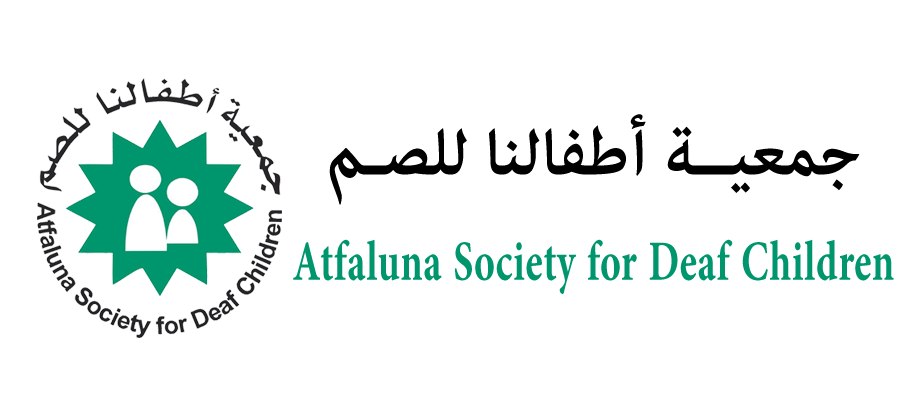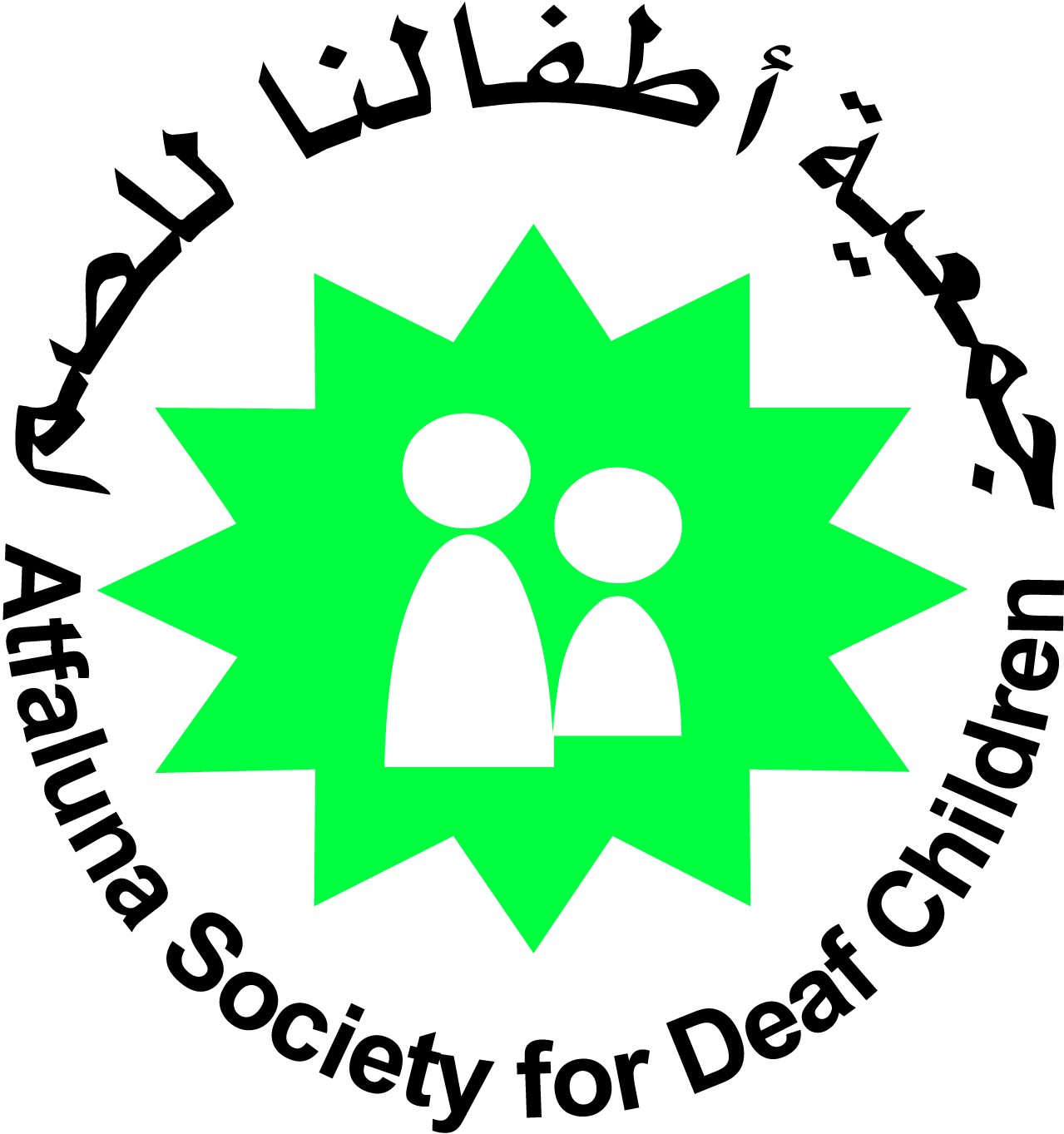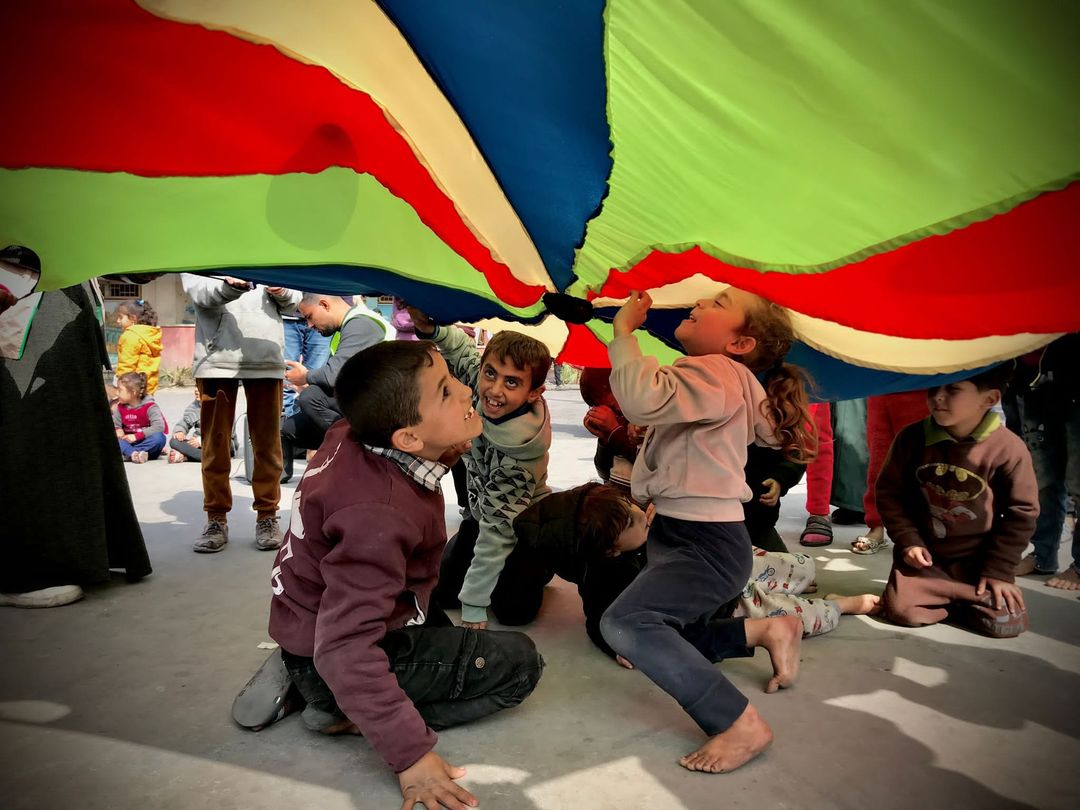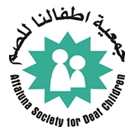Atfaluna School
Atfaluna School has been offering academic educational services for children with hearing disabilities in the Gaza Strip since the year 1992. The Atfaluna School is considered an educational model which endeavours to achieve inclusive development for students with hearing disabilities. The schooling system at Atfaluna starts at kindergarten level and continues onto primary and middle school. The educational process in the school depends on a dual language system which includes verbal and Palestinian Sign Language. The average number of students enrolled in the school is 170 students annually ranging in age from 6 to 17 years of age.
The academic curriculum consists of two main factors: (1) hearing loss rehabilitation subjects including auditory training and auditory speech training and (2) educational subjects including Arabic and English language, mathematics, geography, computer and information technology, civic education, and science. Additionally, the students are introduced to non-curriculum subjects including arts, crafts, and drama.
To ensure the best possible educational environment is available for the students in class the number of students in each group is limited to 12 students at most allowing teacher and student to have close one to one communication. Each classroom is furnished with a large mirror and other visual tools to assist children with residual hearing to practice speech in class. The school has also adopted an educational moving class system which requires the students to change classrooms depending on the class schedule. The school operates five days a week from 8 am till 2 pm.
The Atfaluna School works hard to provide high quality services to the students with hearing disabilities through:
- Development of special educational curriculums that accommodate the abilities of students with hearing disabilities due to lack of formal curriculums available to them on a national level. The curriculums are comprehensive and informative and specially formulated to suit the deaf student’s needs including Palestinian sign language and speech language exercises.
- Provision of non-curriculum activities including library sessions, arts and crafts classes.
- Provision of healthy and balanced nutritious meals for the students enrolled in the school throughout the academic year to ensure the students maintain their physical and mental abilities that allow them to concentrate in class and have the energy needed to fully cooperate during lessons. The lunch program at Atfaluna has proved vital to support the educational accumulation of the students which under the deteriorated conditions in Gaza has affected the majority of the deaf students’ families.
- Social support and counselling for deaf children and their families to resolve issues preventing the inclusion of children with hearing disabilities within their families and communities.
Aim of the Program:
Achieving comprehensive cohesion for students with hearing disabilities and enabling them educationally and including them within the Palestinian society and attaining them their full rights.
Academic Teaching Staff:
The Atfaluna School teaching committee consists of 45 teachers, 22 of which are with hearing disabilities. The team consists of administrators, educational supervisors, social workers and counsellors. The organization makes every effort to develop the teaching skills of its academic team in the school and has therefore, submitted its teaching assistants all of whom are with hearing disabilities into five-year training program consisting of communication development and academic sign language. The organisation also regularly enrols its staff in capacity development training to support their teaching skills.
School Social Services Unit:
The unit employs a social worker and school counsellor as well as a counsellor assistant who has hearing disability. The unit offers several support programs for the students with hearing disabilities enrolled in the School that aims at improving their lives and improving their educational achievements through offering them social and psychosocial interventions in addition to building the students awareness as well as their families through individual and group counselling sessions and regular home visits. The unit conducts open days that include recreational as well as non-curriculum activities for the students as well as educational and recreational field trips.




